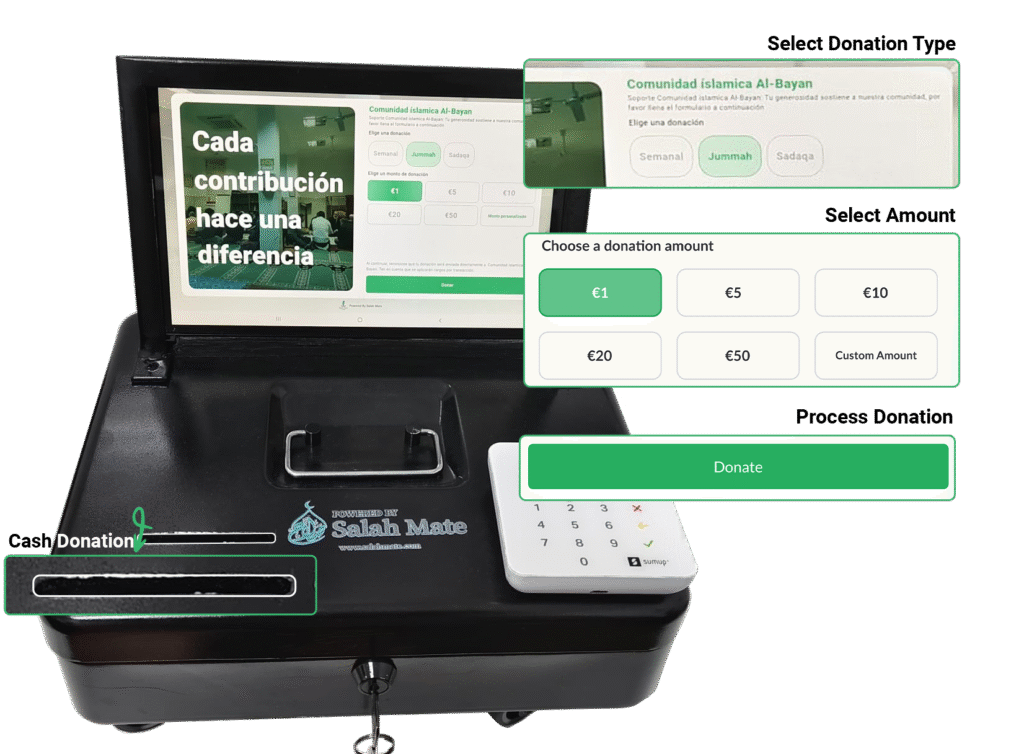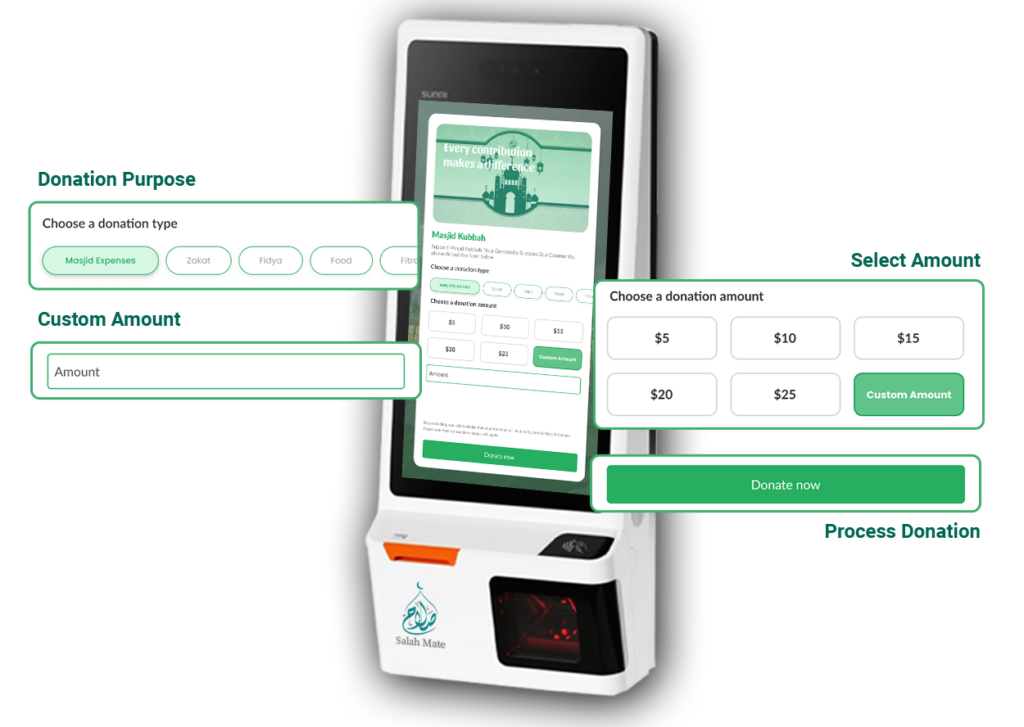Do Muslims donate to mosques?
Do Muslims Donate to Mosques? Salah Mate’s Mosque Donation App Makes It Easy
After Jumu’ah prayers, my family dropped cash into the mosque’s donation box. It felt meaningful. Do Muslims still donate to mosques in 2025? Yes, and Salah Mate’s mosque donation app simplifies it. Let’s explore why giving matters.
Why Muslims Donate to Mosques
Muslims donate to mosques to support our faith. Zakat and sadaqah fund upkeep and programs. Mosques need these contributions to thrive. Salah Mate’s Islamic donation app offers cashless giving. It’s fast and secure.
The Importance of Donations in Islam
Giving is a core Islamic duty. It purifies wealth and builds community. Mosques rely on donations for prayer spaces and services. Salah Mate’s Kiosk App makes giving easy. You can donate with a tap after prayers.
Zakat and Mosque Funding
Zakat is 2.5% of eligible wealth given annually. Many choose Ramadan for zakat. American Muslims donated $1.8 billion in 2021, per Indiana University. Mosques use zakat for operations and growth. Salah Mate’s mosque donation app tracks contributions securely.
Mosque Donations Uphold Community Services
Donations keep mosques running. They fund schools, food pantries, and health fairs. Salah Mate’s Kiosk App provides instant donation reports. This helps admins plan impactful programs for the community.
Role of Sadaqah in Supporting Mosques
Sadaqah is voluntary charity with lasting rewards. Each prayer in a supported mosque benefits you. Salah Mate’s Salahmate App lets you set recurring sadaqah. This keeps mosques vibrant.
Charitable Giving Among Muslims
Muslims give through zakat and sadaqah jariyah. Building a mosque is sadaqah jariyah, rewarding you forever. Salah Mate’s app makes giving simple. You can support mosques anywhere with ease.
Fundraising Events for Mosque Maintenance
Mosques host festivals and crowdfunding drives. These events fund upkeep and engage communities. Salah Mate’s TV Companion App promotes events with QR codes. This boosts donations via the Kiosk App.
Islamic Philanthropy and Construction Projects
Muslim donations fund global projects, like refugee water points. Ramadan campaigns, like UNHCR’s, thrive on generosity. Salah Mate’s platform supports secure, cashless mosque donations. Your giving creates lasting impact.
Donating to Mosques During Ramadan
Ramadan sparks generosity. NYC’s Muslims donate millions yearly. Zakat feels special this month. Salah Mate’s app simplifies giving after Taraweeh. It’s quick and keeps your focus on faith.
Endowments Keeping Islamic Centers Thriving
Endowments give mosques steady income. They reduce fundraising stress. Salah Mate’s tools track endowment gifts. This helps mosques plan for long-term stability.
Global Impact of Muslim Generosity
Muslims give $600 billion in zakat yearly. LaunchGood raised $40 million in 2024. Salah Mate’s mosque donation app channels generosity to mosques. It ensures secure, impactful giving.
Legacy Gifts Bolster Religious Institutions
Legacy gifts, like bequests, secure mosques’ futures. They offer tax benefits. Salah Mate helps mosques manage these gifts transparently. This builds donor trust.
How Salah Mate’s Mosque Donation App Helps
Salah Mate’s Kiosk App transforms giving. One mosque saw 30% more donations! Key features:
- Secure Giving: PCI-compliant encryption protects funds.
- Real-Time Tracking: Admins see donations instantly.
- Flexible Options: Choose one-time or recurring payments.
- Community Impact: Funds youth programs and charity drives.
Why Go Cashless with Salah Mate?
Cashless donations are quick and secure. Salah Mate’s ad-free Islamic donation app fits 2025’s digital world. Give after prayers or support projects with ease.
Tips for Mosque Admins
Boost donations with these ideas:
- Place the Kiosk App at mosque entrances.
- Use TV Companion App for QR code campaigns.
- Share stories in our community forum.
Join the Giving Movement
Muslims support mosques with heart. Salah Mate makes it simple. Try our mosque donation app or request a demo. Keep mosques thriving!
Or contact us at [email protected]



